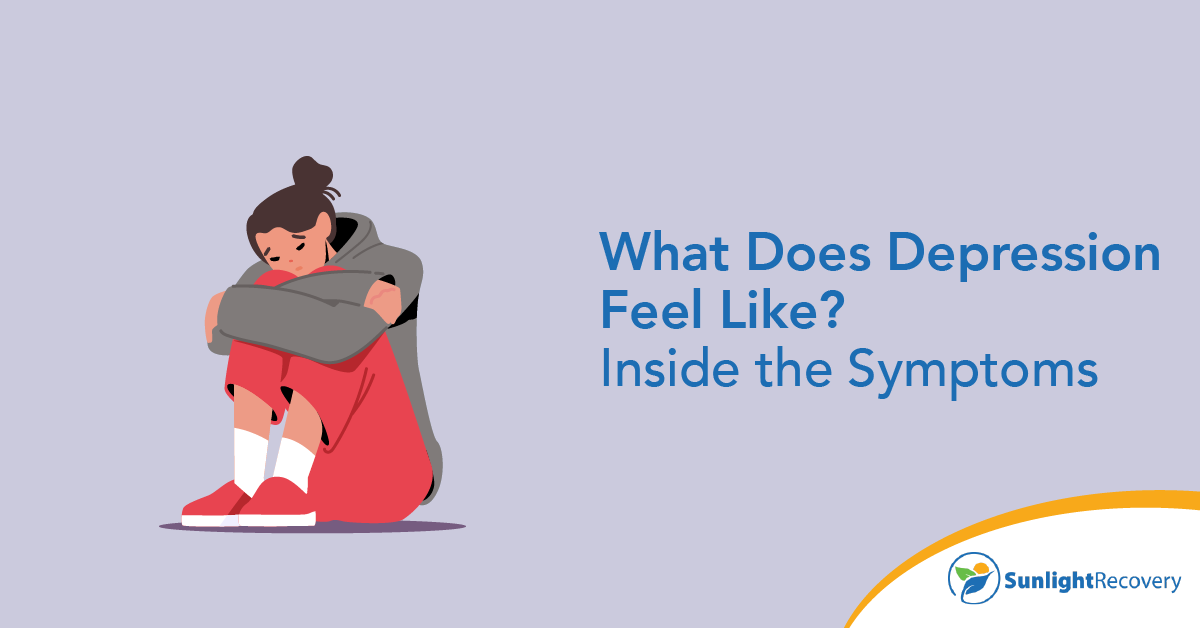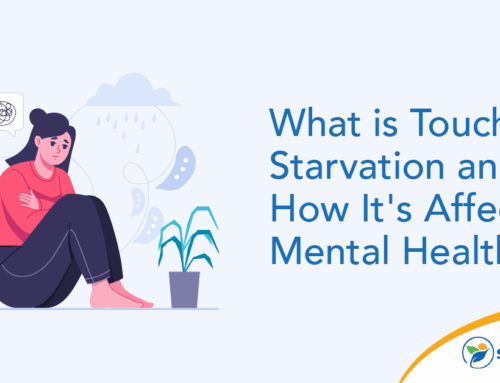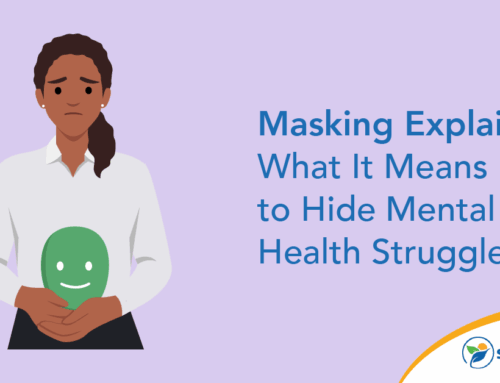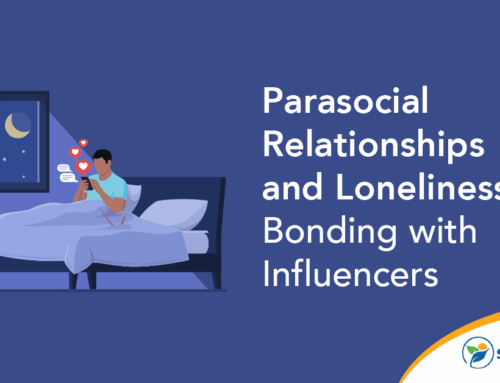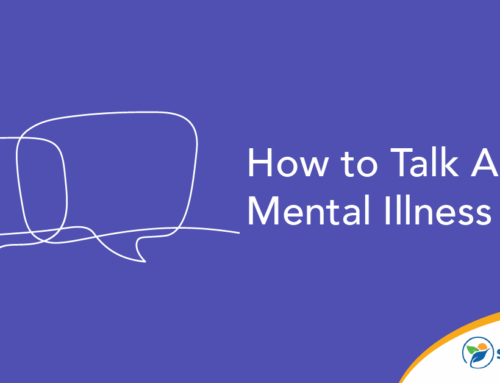Depression affects people from all walks of life, with an estimated 1 in 10 Americans having experienced depressive symptoms in the last year. That figure increases to 1 in 5 for young adults and adolescents. Despite the prevalence, many people struggle to differentiate between normal sadness or anxiety and the more serious and long-lasting symptoms of depression. What does depression feel like? When does a healthy response to a situation become a more serious mental health condition?
What Does Depression Feel Like?
To understand depression, you first need to realize that the experience is different for everyone. If you ask one person “How does it feel to be depressed?” they might describe it as “living life under a weighted blanket.” To another, it might be feelings of despair, guilt or sadness. Some common emotional and psychological symptoms of depression include:
- Low mood
- Sadness
- Hopelessness
- Helplessness
- Guilt
- Irritability
- Tearfulness
- Indecision
- Loss of interest in hobbies
- Inability to enjoy once interesting activities
- Anxiety
- Worry
- A desire to self-harm
- Psychosis
- Suicidal thoughts
While feeling sad can be a sign, it’s not always a symptom, and sadness alone doesn’t indicate depression. Persistent sadness or low mood with no obvious external cause is often an indicator of the condition, but for some people, the symptoms are very different. A person might not feel sad but they might simply struggle to feel anything at all. A loss of interest in social activities and hobbies and an inability to find the motivation to work can be signs of depression.
Physical Signs You Might Overlook
In addition to the psychological signs of depression, the condition can cause physical symptoms. These include:
- Increased or decreased appetite
- Constipation
- Low energy
- Loss of libido
- Sleep disturbances
- Slower movement and speech
- Unexplained aches and pains
Some people living with depression have difficulty keeping up with the activities of daily living. Tasks such as brushing teeth, bathing, exercise, and general grooming may fall by the wayside. If someone lives with these symptoms for a long time, they might experience side effects due to this behavior.
How Depression Feels Different for Everyone
What does depression feel like? The truth is, there’s no simple answer to this question. Depression might present itself in many ways, and many types exist.
For example, major depressive episodes last for 2 weeks or longer and are characterized by a person experiencing low mood, loss of interest in daily activities and several of the other symptoms listed above. This kind of depression is common, with at least 10% of people in the United States experiencing an episode at some point in their lives and the condition being twice as common in women as it is in men.
Other forms may have different symptoms or last for a different amount of time. For example, seasonal affective disorder is a form of depression characterized by low energy and mood that typically occurs during the winter months, while premenstrual dysphoric disorder refers to depression and anxiety in the weeks before a menstrual period. Mood swings associated with hormonal fluctuations can feel intense, but they may not include the same number of symptoms as someone experiencing a major depressive episode.
Individuals living with bipolar disorder may experience bouts of mania, during which a person might engage in risk-seeking behaviors followed by bouts of depression-like symptoms. Each part of the cycle may last a few days or weeks. Since the bouts of depression are relatively short and may simply manifest as low energy or anxiety, it’s easy to overlook these symptoms and think they aren’t related to depression.
Some individuals still feel a stigma about depression-like symptoms and may attempt to conceal how they’re feeling or push on with day-to-day activities despite the challenges they face. This has led to many misconceptions about the definition of depression and how people experience it.
Whether you’re sad, anxious, numb, preoccupied with guilt or simply struggling to find joy in your usual pursuits, the feelings you have could be a symptom of depression. Only a licensed mental health professional can diagnose your condition and help you get on the road to a better frame of mind.
When to Seek Professional Help
If you’re experiencing one or more of the symptoms of depression and they’ve been dominating your thoughts most of the day, every day, for 2 or more weeks, it’s a good idea to seek professional advice. It’s particularly important to seek help if you feel your symptoms are getting worse or you’re having thoughts of self-harm or suicide.
Don’t fall into the trap of thinking your symptoms aren’t severe enough or that it’s unlikely a doctor or therapist could make things better. The sooner you seek help for your symptoms, the more likely it is that you’ll recover from your mental health challenges and get back to your usual routine.
Recovering from depression isn’t always easy — especially if a major life change or a traumatic event triggered the depression. However, with support, you can find healthy coping mechanisms to help you process your emotions, practice self-care and avoid falling into a negative spiral.
Take the First Step Toward a Better Future
Everyone experiences depression differently, so everyone’s route to recovery is different. If you or someone you care for experiences the symptoms of depression, it’s important to seek professional help as early as possible.
Sunlight Recovery Can Help
At Sunlight Recovery, we have a team of therapists, counselors and other medical professionals who can help with depression, anxiety, addiction and other similar issues. Contact us today to speak in confidence with one of our admissions team.


